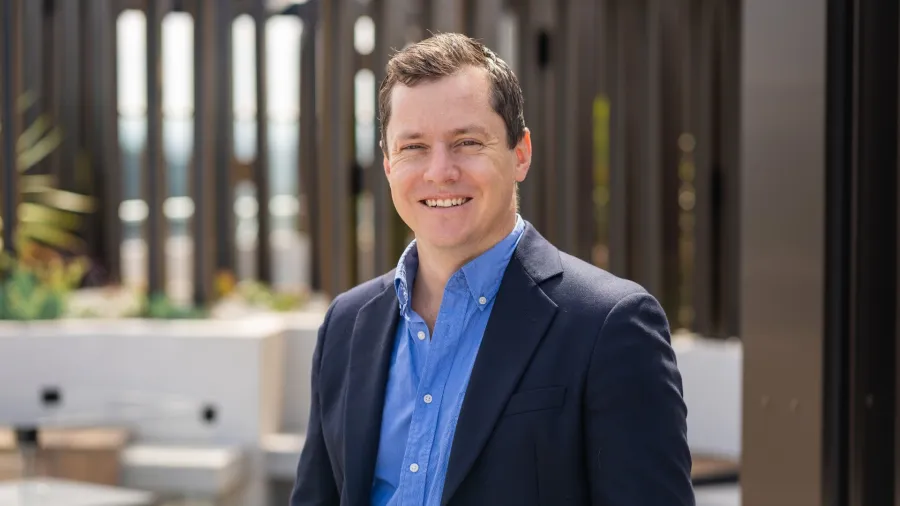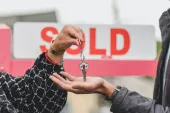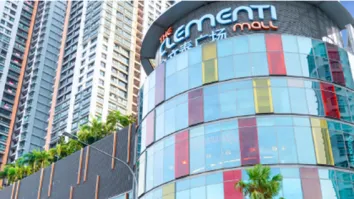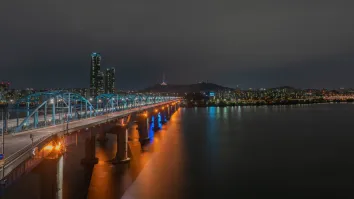
Pave sees rising demand for overseas property investments
The firm helps buyers purchase cross-border and handles administration for clients.
The pandemic may have briefly freed workers from the office, but the dream of many is to not just work from home, but to work from a second home, preferably in a beautiful location in Asia.
This is the market that Pave, a startup focused on helping investors find and acquire their dream property overseas, believes is set to boom as more seek to buy properties to invest in.
In an exclusive interview with Real Estate Asia, Pave Founder and CEO Alan Schmoll said that whilst real estate investors have long been attracted to buying in emerging markets, the demand significantly grew when the pandemic hit.
Pave is an online portal which offers cross-border real estate property assistance in purchasing new homes or apartments. Apart from offering homes available for sale, they also provide legal, tax, and financial consultations.
Amongst the most significant trends they have noticed is that many buyers are seeking to invest in properties overseas. While these are mainly done for capital appreciation, some invest in properties prior to immigrating to another country.
“What we do is use a lot more data around properties around buyers intentions to match properties that are more relevant to the end buyer. They may want to have a condo in Bangkok, or they want to own a ski lodge in Niseko,” he said.
“It could be for investment reasons, maximizing rental yields or capital appreciation. It could be for immigration. A lot of buyers look to buy a property overseas as a step before they immigrate to a new country,” he added.
Another trend is that investors buy properties to lease out. Earning rentals from overseas spaces is considered one of the more stable options in investing in real estate space.
“Our platform is entirely focused on buyers of property overseas. In terms of what they end up doing with them, some of them are looking to occupier use of the property, and we also have buyers that are purely looking for investment returns, leasing it out to other buyers,” he said.
“We do work with them, to connect them with agents on the ground in those countries to ensure that they are able to lease their properties out at a satisfactory yield. So those are the two main uses of the property: both owner occupier as well as buying for investment and then and then leasing out,” he added.
In terms of the more developed markets like the UK and Australia, there is a need to be a bit more selective in buying property or for investment.
“Buyers tend to have a variety of risk profiles to solve for and we work with them to understand that before we recommend properties for them, be it an emerging market like Thailand, Vietnam, or more developed markets like the UK and Australia,” he added.
‘Work from Paradise’
The notion of ‘work from paradise’ shows that more employees are opting to move to places with lower living costs now that remote work is more feasible. No longer will they need to stay in the same country where their employer operates, as businesses become more flexible in having their talents perform work elsewhere.
“What we've seen change with the pandemic is really a couple of trends. One is this term of ‘work from paradise’ that is becoming a real consideration for people,” he said.
“If they're employers or if they're entrepreneurs, given the flexibility to live elsewhere, a lot of them are thinking about buying a second or third home in a place that is more of a paradise. It may be Bali, Phuket, or in Bangkok,” he added.
Correlated with this is the ‘repatriation move.’ Whilst some may choose to work elsewhere, a number of employees have opted to return back to their home country.
Schmoll said that a number of Australians who moved to Singapore or Hong Kong for work are now considering moving back to Melbourne or Sydney as remote work is now possible with their employers.
“Second is the ‘repatriation move’ as we call it, with expats that have been living in places like Hong Kong or Singapore for 5, 10, 15 years. Given what's going on with COVID and the difficulty of traveling across borders, as well as also being able to conduct their jobs remotely, you're now seeing quite a few foreigners thinking for themselves,” he said.
“Do I need to be based in Hong Kong and Singapore to do my job or should come back to Australia? That is something that we've seen quite a bit of inquiry on particularly coming back into Melbourne and Sydney for expats that live in Hong Kong for a fair period of time,” he added.
Emerging markets like Thailand and Vietnam are currently the top picks in these queries. For Schmoll, these countries are promising as they project that properties here will still appreciate in the coming years.
“Places like Thailand and Vietnam, we term as emerging markets. These are when there is still a lot of scope for appreciation in the underlying property prices. As those countries become wealthier, the middle income earners earn more, and more urbanization will move from the countryside to the city. So, the long term trends in Thailand, Vietnam are always going to be very supportive to property prices appreciating,” he said.

The Issara Sathorn in Bangkok, Thailand is one of the featured projects by Pave on its portal.
Pave Bespoke
Whilst the main platform serves as an easily accessible way for buyers to reach their consultants, Schmoll said that they also have the Pave Bespoke to cater to buyers with more niche preferences. Here, clients may request for properties not included in Pave’s platform.
Apart from removing the legwork, the Bespoke options will aid buyers from finding their highly coveted homes to closing in the deal.
Clients will receive a shortlist of choices that Pave consultants will search for them personally. From there, Pave will assist in legal and accounting matters, including arrangements needed with banks and even in furnishing the place with interior designers.
“The way that works is there is a small down payment that is paid to us. Then, we go out there and represent them from search and discovery and finding a list of shortlisted properties that we feel meet the requirements, to negotiation with the vendor. In this case, the vendor could be a developer or could be a secondary home seller,” he said.
“Engaging and helping them with lawyers and legal work, working with accountants and all the way through to settlement, working with a bank and as well as even furnishing and decorating the property are steps similar to the end to end service we provide through our platform but in this case, it's just again a little bit more bespoke in terms of what they're looking for,” he added.
Adapting to lifestyles
Looking forward, Schmoll said that Pave aims to be able to provide options to their buyers depending on their individual lifestyles. As online portals grow in number, Pave wants to set itself apart by offering information about the surrounding area of the properties they have on sale.
“I think it's important for us to also be a lifestyle platform to give insights to people around the areas that they're buying. If they're looking at buying an investment property in Manchester, we're providing details about the supply and demand and the real estate market. This includes what people are looking at rents, what people are buying, what's going on infrastructure, price per square meter or trends and yields,” he said.
“But I think just as important to that is we'll be providing a lot of information around lifestyle. What are some of the reasons why aside from work people want to actually live in a place like Birmingham. What's the restaurant scene like? What's the nightlife scene like? What's the sporting scene like? What can people do on the weekend for their hobbies?” he added.
Schmoll said that they observed that buyers are becoming more comfortable buying properties online. The pandemic brought about this new trend of online tours of properties, which efficiently removed the necessity of being at the exact location of the property.
Pave offered 3D tours of their properties and had their consultants available online for possible questions for their prospective buyers.
“People are becoming more and more comfortable buying things online. It’s not to say that people don't want to go and view a property themselves anymore, we don't have an issue with that,” he said.
“We provide our buyers the information, videos, floor plans, information about the areas, 3D walkthroughs, using drone technology to provide views from the actual level that somebody's apartment may be on. These are things that make people more comfortable again, doing things in an online environment and we feel that trends are going to accelerate and continue,” he added.
Photos courtesy of Pave.



















 Advertise
Advertise






